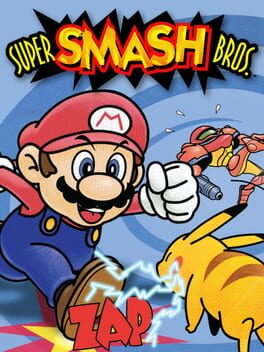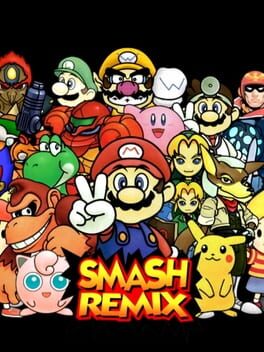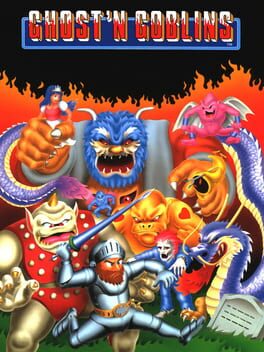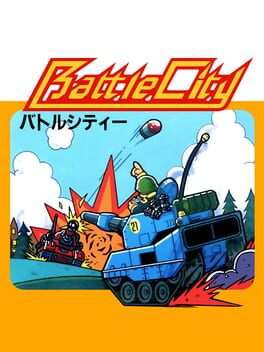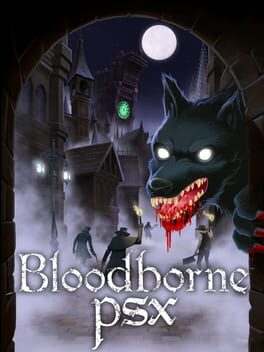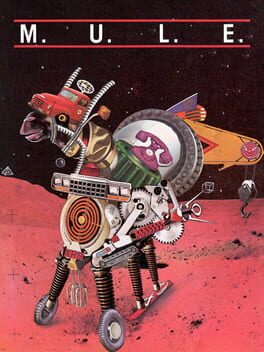Quadoverflow
7 Reviews liked by Quadoverflow
Hi-Fi Rush
2023
I now have two big regrets when it comes to gaming. The first is that I have gone through life having never owned a PlayStation 2, and the second is that I didn’t support and play Tango Gameworks’ Hi-Fi Rush before the studio was unfairly axed by Microsoft in 2024. The year prior was a crazy year in terms of the amount of quality game releases, and it was quite frankly, a tad overwhelming keeping up with them all. Despite all of the praise being given to Hi-Fi Rush, there were just so many other games that were coming out, or games that I wanted to get to, that I just threw it on the backlog thinking that I’d get to it eventually. Unfortunately, 2023 was also a year with a heartbreakingly large amount of game studio closures, and this is something that is continuing in 2024, with Tango Gameworks themselves being a recent victim at the time of writing this review, despite all of the success that Hi-Fi Rush had achieved the year prior. Coincidentally, the game also had gone on sale as part of a Humble Bundle around the same time the studio was shut down, and fellow Backloggd user duhnuhnuh had an extra key for the game that they were offering (huge shoutouts to him by the way, I’m extremely grateful). Given the timing of everything and an opportunity to play the game in a way that doesn’t directly support Microsoft, I leapt at the chance to give this game its due diligence, and I was absolutely floored at how much the game truly lived up to all of the praise people had given it.
Hi-Fi Rush is a rhythm-based action game that takes place in a city in the far future. It stars Chai, a sarcastic and oblivious slacker dude with a disabled arm who really wants to become a rockstar. He volunteers for a cybernetic limb replacement program being run by Vandelay Technologies on their very own campus. Shortly before the process begins, CEO of Vandelay Technologies: Kale Vandelay, a callous CEO stereotype, observes Chai’s records. Unimpressed, he harshly dubs him a loser before he carelessly tosses Chai’s music player away, causing it to fall into the testing site onto Chai’s chest. During the limb replacement process, the music player becomes embedded within Chai, giving him electromagnetic powers while also causing his environment to sync up with the music itself. However, this causes him to be labeled as a defect by Vandelay Technologies, whose security forces attempt to bring him in. As he flees, he meets up and makes a deal with Peppermint, a robotics prodigy with a grudge against the corporation, who helps him escape in exchange for helping her investigate them. Together, the two team up to uncover the shady secrets behind the scenes of Vandely Technologies so that they can expose them to the world and stop their plans from unfolding.
The gameplay is that of a character action game like Devil May Cry and Bayonetta, but with rhythm game elements that supplement the combat and platforming. Before I played the game, I heard a lot of people comparing it to Devil May Cry, but I wrote those comparisons off as an over-exaggeration, since I feel like a lot of people will compare any action game with combat they really like to Devil May Cry. I was delightfully surprised to learn that no, the game really is essentially Devil May Cry, but with rhythm game elements. You can perform a variety of combos that are dependent on the timing of your button presses, you’ve got a stiff yet highly vertical jump, you’ve got short platforming segments to serve as variety in-between the combat, you’ve got a ton of different upgrades and additional combos you can purchase with the game’s currency, and you’re graded on your performance after every battle and level with a letter ranking system.
Everything in the game is tied to the beat of the song that’s currently playing, and I do mean everything. The attacks and movements of your enemies, platforming hazards, sound effects, and even animations in the background are all tied to the music, and the game tests you on your ability to not only perform well while in battle, but doing so while also staying on beat with the music. I did find it a bit difficult to get used to timing my attacks to the beat at first, but I got better and better at it as time went on. I can’t tell you how satisfying it feels when you’re able to successfully perform attacks in sync with the rhythm. Just like in Devil May Cry 5, the music will add additional layers of instrumentation the higher your letter score, and the game will also play the sound of an audience chanting Chai’s name as well. The better you do, the more ecstatic the game feels, and performing really well during a fight can feel genuinely euphoric.
The rhythm game elements don’t stop at syncing your attacks to the beat, however. There are a number of quicktime events where you need to press the correct buttons at the correct timing, such as during certain special attacks Chai can perform. Additionally, when close to death, more powerful enemies and certain bosses can force you into a one-on-one segment where you’ll need to successfully parry or dodge their attacks, which are telegraphed to a series of specific beats that you need to replicate with your button presses, and successfully doing so allows you to finish them off with one final strike. As someone who is a big fan of character action games, it’s extremely surprising how fresh and satisfying adding rhythm elements to this genre’s gameplay makes the game as a whole feel. This melding of the genres works fantastically. There is a great sense of cohesion between the two, and for the most part, elements of one genre don’t overshadow the other.
There’s only one element of combat that I have some small issues with. As the game progresses, you will meet additional characters who become allies that you can call upon during combat to aid you in battle. They’ll perform a special attack that has a cooldown once it’s executed. Your allies become a pretty key part of combat, as these special attacks are needed in order to make certain enemies or bosses vulnerable. The issue is how inconsistently your allies’ attacks function. You can’t manually target enemies, so when you call on your allies to use their attack, they can sometimes use it on the wrong enemy, or they’ll miss entirely. If this happens, then you’ve just wasted that summon and you now have to wait for the cooldown to finish before you can summon your ally to attack again. This was especially annoying with Macaron, who needs to use his ability twice in order to break the shields of certain enemies, and whose cooldown takes twice as long compared to your other allies. If he misses or targets the wrong enemy, then you’re basically a sitting duck until his ability recharges, which can be very frustrating. You can purchase some upgrades to make the cooldown slightly better, but they do cost a lot of currency, currency I’d rather spend on other things that can enhance the gameplay experience for myself, like additional combos I can perform, or items that increase my health or special attack gauge.
The game’s tone is very playful, upbeat, and fun, complimented by a gorgeously colorful artstyle that’s inspired by a combination of western and eastern comic books/manga. It tells a story that is a not at all discreet criticism regarding how the leaders of corporations frequently interfere with, mismanage, and ruin the lives of those who work under them. It also goes into demonstrating how much this hurts when the job is something that people have aspired to do for much of their lives, and are very passionate about. The story is extremely straightforward, but you can tell it’s one that comes from very real experiences that I’m sure the folks that have worked on the game have gone through, and considering what ended up happening with Tango Gameworks, it’s a story that resonates now more than ever.
The characters are decent, they serve the story well enough. I will say I’m not the biggest fan of Chai, but he did eventually grow on me. He’s a huge dork who’s very self-serving, unmotivated, and oblivious to those around him. He does get better as he starts to take the situation at hand more and more seriously and comes to care more about the people he meets and works with to take down Vandaley, though his ego remains pretty big still by the end of the game. He’s not at all a bad character or protagonist, he’s just a little too white bread for my tastes. The other characters don’t get much of a focus during the game’s main story, but talking to them in-between missions at the hideout allows you to learn more about them and how they feel about the unfolding events of the narrative. I think I might’ve developed a stronger attachment to them if they had a larger presence in the main plot, but this is still a fine and fun cast of characters.
While I personally would’ve preferred the tone be a bit less playful and to have had a little more edge to it, like the old school Guitar Hero games or Brutal Legend, I feel that would’ve made the game somewhat of a harder sell, not just to general audiences but to get approval to make the game in the first place. The exaggerated, Saturday morning cartoon-esque personalities of the game’s characters (the villains in particular), really manage to offset how personal, and in a way, sad the message that’s being communicated under the surface is. The villain Zanzo in particular is an excellent demonstration of this. His manically over-the-top demeanor and constant Jojo posing, to a certain degree, masks the very real, outrageous, and constant demands the person in charge of a team may have, and how their ego can get in the way of seeing the project to completion, making the efforts of the overworked people underneath them all for naught. The game’s current tone isn’t at all a bad one either. I can see some folks not jiving with the comedy, and I can also see certain people writing it off as “reddit humor”, but even if the game didn’t necessarily make me laugh out loud, I still found it to be endearing.
I’ve really enjoyed the rhythm games I’ve played, but I don’t play too many of them because the vast majority of them don’t appeal to my taste in music, so I’m really glad this game exists. I played the game with its original soundtrack instead of the licensed music (in case I decide to one day stop being a coward and start making YouTube videos), and I gotta say, it was pretty fantastic. I’m more of a metalhead than a rock guy, but this game’s music is still really good. The soundtrack has a lotta groovy riffs and decent solos that are never tiresome or boring to listen to.
Hi-Fi Rush was truly a surprise for me. I went into this without much in terms of expectations, but its fluid and immensely satisfying combat and complete banger of a soundtrack kept me hooked the entire time. I’m heavily debating doing a quick second playthrough of the game even though I’ve finished it because I was just that hooked and enamored by its gameplay. If the game had a different tone and a heavier soundtrack, I genuinely think it would’ve ended up being my dream video game, but even as it currently stands, it’s a brand new favorite of mine. The irony of a game condemning the actions of corporate dickheads becoming a massive success while the studio that made it gets shut down a year after it launches is honestly extremely tragic. It’s not like my $30 was the $30 that would’ve kept Tango Gameworks from shutting down, but I still feel really bad after finally playing this game that I didn’t purchase it and support Tango while they still existed. If you haven’t played Hi-Fi Rush, I implore you to, and I also implore you to learn from my mistake and actually support those games that don’t get AAA marketing, yet gain an outstanding reputation via word of mouth. Don’t just put them on your wishlist forever and wait. I can’t stress enough how much we need more games like Hi-Fi Rush, and if we don’t make our voices heard with our wallets, we hurt the chances of these games being made in the future.
Forever and always: Fuck You, Microsoft.
Hi-Fi Rush is a rhythm-based action game that takes place in a city in the far future. It stars Chai, a sarcastic and oblivious slacker dude with a disabled arm who really wants to become a rockstar. He volunteers for a cybernetic limb replacement program being run by Vandelay Technologies on their very own campus. Shortly before the process begins, CEO of Vandelay Technologies: Kale Vandelay, a callous CEO stereotype, observes Chai’s records. Unimpressed, he harshly dubs him a loser before he carelessly tosses Chai’s music player away, causing it to fall into the testing site onto Chai’s chest. During the limb replacement process, the music player becomes embedded within Chai, giving him electromagnetic powers while also causing his environment to sync up with the music itself. However, this causes him to be labeled as a defect by Vandelay Technologies, whose security forces attempt to bring him in. As he flees, he meets up and makes a deal with Peppermint, a robotics prodigy with a grudge against the corporation, who helps him escape in exchange for helping her investigate them. Together, the two team up to uncover the shady secrets behind the scenes of Vandely Technologies so that they can expose them to the world and stop their plans from unfolding.
The gameplay is that of a character action game like Devil May Cry and Bayonetta, but with rhythm game elements that supplement the combat and platforming. Before I played the game, I heard a lot of people comparing it to Devil May Cry, but I wrote those comparisons off as an over-exaggeration, since I feel like a lot of people will compare any action game with combat they really like to Devil May Cry. I was delightfully surprised to learn that no, the game really is essentially Devil May Cry, but with rhythm game elements. You can perform a variety of combos that are dependent on the timing of your button presses, you’ve got a stiff yet highly vertical jump, you’ve got short platforming segments to serve as variety in-between the combat, you’ve got a ton of different upgrades and additional combos you can purchase with the game’s currency, and you’re graded on your performance after every battle and level with a letter ranking system.
Everything in the game is tied to the beat of the song that’s currently playing, and I do mean everything. The attacks and movements of your enemies, platforming hazards, sound effects, and even animations in the background are all tied to the music, and the game tests you on your ability to not only perform well while in battle, but doing so while also staying on beat with the music. I did find it a bit difficult to get used to timing my attacks to the beat at first, but I got better and better at it as time went on. I can’t tell you how satisfying it feels when you’re able to successfully perform attacks in sync with the rhythm. Just like in Devil May Cry 5, the music will add additional layers of instrumentation the higher your letter score, and the game will also play the sound of an audience chanting Chai’s name as well. The better you do, the more ecstatic the game feels, and performing really well during a fight can feel genuinely euphoric.
The rhythm game elements don’t stop at syncing your attacks to the beat, however. There are a number of quicktime events where you need to press the correct buttons at the correct timing, such as during certain special attacks Chai can perform. Additionally, when close to death, more powerful enemies and certain bosses can force you into a one-on-one segment where you’ll need to successfully parry or dodge their attacks, which are telegraphed to a series of specific beats that you need to replicate with your button presses, and successfully doing so allows you to finish them off with one final strike. As someone who is a big fan of character action games, it’s extremely surprising how fresh and satisfying adding rhythm elements to this genre’s gameplay makes the game as a whole feel. This melding of the genres works fantastically. There is a great sense of cohesion between the two, and for the most part, elements of one genre don’t overshadow the other.
There’s only one element of combat that I have some small issues with. As the game progresses, you will meet additional characters who become allies that you can call upon during combat to aid you in battle. They’ll perform a special attack that has a cooldown once it’s executed. Your allies become a pretty key part of combat, as these special attacks are needed in order to make certain enemies or bosses vulnerable. The issue is how inconsistently your allies’ attacks function. You can’t manually target enemies, so when you call on your allies to use their attack, they can sometimes use it on the wrong enemy, or they’ll miss entirely. If this happens, then you’ve just wasted that summon and you now have to wait for the cooldown to finish before you can summon your ally to attack again. This was especially annoying with Macaron, who needs to use his ability twice in order to break the shields of certain enemies, and whose cooldown takes twice as long compared to your other allies. If he misses or targets the wrong enemy, then you’re basically a sitting duck until his ability recharges, which can be very frustrating. You can purchase some upgrades to make the cooldown slightly better, but they do cost a lot of currency, currency I’d rather spend on other things that can enhance the gameplay experience for myself, like additional combos I can perform, or items that increase my health or special attack gauge.
The game’s tone is very playful, upbeat, and fun, complimented by a gorgeously colorful artstyle that’s inspired by a combination of western and eastern comic books/manga. It tells a story that is a not at all discreet criticism regarding how the leaders of corporations frequently interfere with, mismanage, and ruin the lives of those who work under them. It also goes into demonstrating how much this hurts when the job is something that people have aspired to do for much of their lives, and are very passionate about. The story is extremely straightforward, but you can tell it’s one that comes from very real experiences that I’m sure the folks that have worked on the game have gone through, and considering what ended up happening with Tango Gameworks, it’s a story that resonates now more than ever.
The characters are decent, they serve the story well enough. I will say I’m not the biggest fan of Chai, but he did eventually grow on me. He’s a huge dork who’s very self-serving, unmotivated, and oblivious to those around him. He does get better as he starts to take the situation at hand more and more seriously and comes to care more about the people he meets and works with to take down Vandaley, though his ego remains pretty big still by the end of the game. He’s not at all a bad character or protagonist, he’s just a little too white bread for my tastes. The other characters don’t get much of a focus during the game’s main story, but talking to them in-between missions at the hideout allows you to learn more about them and how they feel about the unfolding events of the narrative. I think I might’ve developed a stronger attachment to them if they had a larger presence in the main plot, but this is still a fine and fun cast of characters.
While I personally would’ve preferred the tone be a bit less playful and to have had a little more edge to it, like the old school Guitar Hero games or Brutal Legend, I feel that would’ve made the game somewhat of a harder sell, not just to general audiences but to get approval to make the game in the first place. The exaggerated, Saturday morning cartoon-esque personalities of the game’s characters (the villains in particular), really manage to offset how personal, and in a way, sad the message that’s being communicated under the surface is. The villain Zanzo in particular is an excellent demonstration of this. His manically over-the-top demeanor and constant Jojo posing, to a certain degree, masks the very real, outrageous, and constant demands the person in charge of a team may have, and how their ego can get in the way of seeing the project to completion, making the efforts of the overworked people underneath them all for naught. The game’s current tone isn’t at all a bad one either. I can see some folks not jiving with the comedy, and I can also see certain people writing it off as “reddit humor”, but even if the game didn’t necessarily make me laugh out loud, I still found it to be endearing.
I’ve really enjoyed the rhythm games I’ve played, but I don’t play too many of them because the vast majority of them don’t appeal to my taste in music, so I’m really glad this game exists. I played the game with its original soundtrack instead of the licensed music (in case I decide to one day stop being a coward and start making YouTube videos), and I gotta say, it was pretty fantastic. I’m more of a metalhead than a rock guy, but this game’s music is still really good. The soundtrack has a lotta groovy riffs and decent solos that are never tiresome or boring to listen to.
Hi-Fi Rush was truly a surprise for me. I went into this without much in terms of expectations, but its fluid and immensely satisfying combat and complete banger of a soundtrack kept me hooked the entire time. I’m heavily debating doing a quick second playthrough of the game even though I’ve finished it because I was just that hooked and enamored by its gameplay. If the game had a different tone and a heavier soundtrack, I genuinely think it would’ve ended up being my dream video game, but even as it currently stands, it’s a brand new favorite of mine. The irony of a game condemning the actions of corporate dickheads becoming a massive success while the studio that made it gets shut down a year after it launches is honestly extremely tragic. It’s not like my $30 was the $30 that would’ve kept Tango Gameworks from shutting down, but I still feel really bad after finally playing this game that I didn’t purchase it and support Tango while they still existed. If you haven’t played Hi-Fi Rush, I implore you to, and I also implore you to learn from my mistake and actually support those games that don’t get AAA marketing, yet gain an outstanding reputation via word of mouth. Don’t just put them on your wishlist forever and wait. I can’t stress enough how much we need more games like Hi-Fi Rush, and if we don’t make our voices heard with our wallets, we hurt the chances of these games being made in the future.
Forever and always: Fuck You, Microsoft.
Super Smash Bros.
1999
I'd say this is the best official Smash game. The movement, barebones as it is, feels good, and moves have a nice oomph. Only complaint is the stage lineup. A small amount of characters is fine, and almost every stage is well-designed, but it's way too small - though I will give the stages props for being more aesthetically diverse than later Smash games. A lot of this game is carried by its cartoony tone - bring it back and stop doing that epic orchestra shit!
Smash Remix
2021
Makes the best official Smash game more accessible for a younger audience not used to small rosters; has fun options, ranging from essential to niche; has well-designed new characters who are unique but designed within 64's framework, and makes full use of the N64's small library by being a near-comprehensive console crossover.
Ghosts 'n Goblins
1985
Battle City
1985
Bloodborne PSX
2022
M.U.L.E.
1983
Hey guys- I don't normally use this website, but I took some time to read your reviews and a lot of them are written how Mule used to post. Remember that overly long and stupidly complex sentence structure he would use? I'm seeing that way too much, and your reviews tend to be a real pain to read.
I'm not saying you have to publish sarcastic shitpost reviews. If you're writing an in-depth review of the game, that's great. But the reviews can be better.
Reread your reviews before posting them and think to yourself: can I get to the point more concisely? Ultimately your goal should be to make your sentences less wordy. Try practicing by typing a section of your review in Twitter and see if you can make it fit the character limit.
Doing all this will make your points pop and your arguments easier to follow. It will greatly improve your reviews, and your perspective/voice will become stronger.
I'm not saying you have to publish sarcastic shitpost reviews. If you're writing an in-depth review of the game, that's great. But the reviews can be better.
Reread your reviews before posting them and think to yourself: can I get to the point more concisely? Ultimately your goal should be to make your sentences less wordy. Try practicing by typing a section of your review in Twitter and see if you can make it fit the character limit.
Doing all this will make your points pop and your arguments easier to follow. It will greatly improve your reviews, and your perspective/voice will become stronger.

